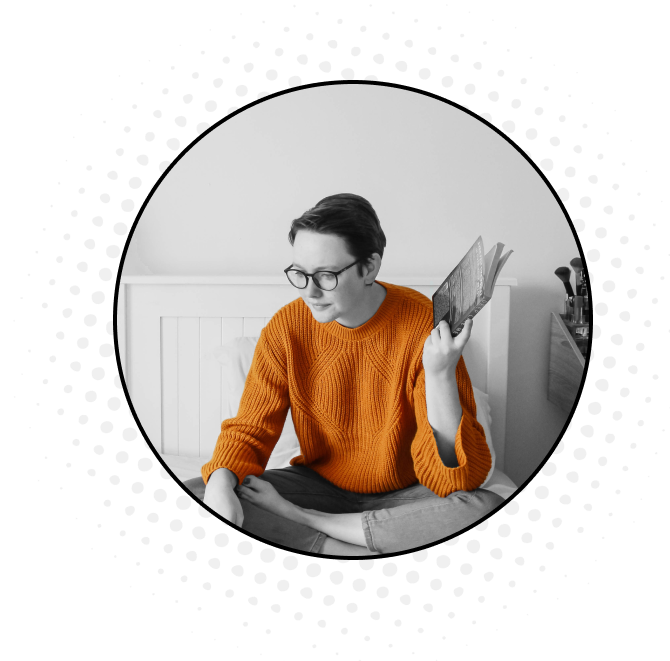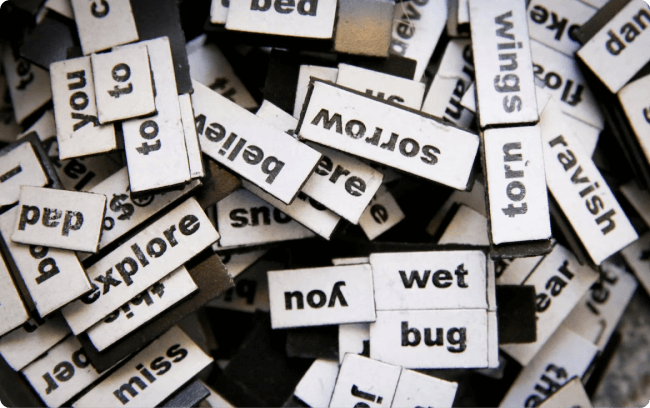Best Dutch course online
Practice the Dutch language with Taalhammer. Achieve fluency and confidence in Dutch in any situation.

Our customers’ stories

Andrew
24 april
I have tried other language apps and found them boring, but with Taalhammer it is easy and fun to practice every day.
Samantha, Edyta and 21 others
6 comments

Samantha
14 april
Taalhammer has helped me master the language in a fun and challenging way. I enjoy the dialogues and scenarios.
Andrew, Edyta and 12 others
4 comments
Why learn Dutch with Taalhammer?
Why learn Dutch with Taalhammer?
Build language memory
Through a combination of relevant content and intelligent repetition, we will develop your memory and language reflexes in Dutch language.
Add and memorize your own content
Our database contains 2.5 million sample sentences, phrases and words in English–Dutch pairs. Not enough? Use our AI translator.
Get a feel for Dutch grammar
Specially prepared examples allow you to memorize and fluently use even the most difficult grammatical constructions of Dutch. Idioms, tenses, perfects or conditionals are no longer a problem.
Who is the Dutch course intended for?
For expats, for students and travelers. And in fact, for anyone who seriously wants to learn Dutch.
Do you already have a teacher? Are you attending a course?
We will help and support you throughout your journey.
But wait a second! What should my level of Dutch be? And what will I be learning?
The Dutch course in the Taalhammer app is designed for users at levels from A0 to B2 and it is divided into the so-called
“core” collections.
Dutch at A0 to B2 level
Choose your topic
In addition, you can choose from thematic collections and quickly master and expand your Dutch in areas such as:
Intensive
Dutch
course
core collections
1200
words
Most common nouns, verbs and adjectives
750
phrases
The most useful phrases
5000
sentences
Carefully selected sentence variations, arranged for easier memorization

1
Core #1 – Dutch for beginners (A0 → A1)
- Talking about the present (onvoltooid tegenwoordige tijd) and the future (zullen)
- Nouns like “het” and “de”
- Negations and questions
- Expressing desire (willen)
- Expressing ability and possibility (kunnen)
- Addressing the elderly and strangers (polite form “u” and “uw”)
- Standard phrases (How are you, Good morning, Hello, Happy Birthday, Happy New Year, Help, Hurry up, Take it easy)
- Expressing opinion
- Numbers 1–1000
2
Core #2 – elementary Dutch (A1 → A2)
- Talking about the past (onvoltooid verleden, voltooid tegenwoordige tijd)
- Pointing to people and objects (deze, die, dit, dat)
- Expressing and asking for opinion (Ik denk dat, Ik vind dat, volgens mij)
- Giving recommendations and advice (zouden, Als ik jou was)
- Describing objects and people (nouns like “het” and “de”)
- Comparison (gradation of the adjective)
- Building simple compound sentences (and, or, but, because)
- Days, months, seasons
- Numbers 1–100000
3
Core #3 – intermediate Dutch (A2 → B1)
- Complex numbers for expressing dates, equations and fractions
- Expressing the contrast between events (e.g. hoewel, ook al, ondanks)
- Referring to past events (toen, wanneer)
- Making promises and offers (zullen)
- Expressing needs and responsibilities (moeten, moesten)
- Expressing prohibitions (mogen niet, hoeven n iet)
- Expressing possibility and permission
- Complex way of referring to things and people (relative sentences)
4
Core #4 – advanced Dutch (B1 → B2)
- Phrasal verbs (e.g., uitnodigen, uitzien)
- Expressing complex relationships between actions and events (e.g., tenzij, zodra, voordat, ondanks)
- Various uses of the word “er” (e.g. Zullen we er naartoe gaan? Ik ben er geweest)
- Making excuses if you are not interested in something or someone
- Past conditional sentences (Als ze had geweten dat het nodig was, zou ze het gedaan hebben)
- Negating ability, possibility, prohibition and necessity in the past (Hij moet haar gezien hebben, We hadden moeten opschieten)
- Passive voice – focusing on the complement instead of the subject
FAQ
How much does an online Dutch course cost?
Less than three coffees a month 🙂 Check out our price list for Dutch and other language courses.
How can I learn Dutch online for free?
First of all, use a repetition system based on Spaced Repetition (SRS) algorithms. There are many at least partially free options, such as Anki or Quizlet. In addition, you need to find a conversation partner. We recommend apps such as Discord or Tandem for this.
However, if you care about convenience and making the most of your time, you should try our app. Many studies show that sooner or later, most students decide to buy some kind of language learning materials anyway, or stop learning.
How can I learn Dutch by myself?
Learning a language is memory training and a test of perseverance. It’s also 80% working alone to acquire, practice and memorize words, phrases and sentences. Nevertheless, the remaining 20% must be talking to other people. This is extremely important. Don’t forget that language is primarily for communication.
What is the best app to learn Dutch for free?
All of the major language learning apps charge for at least some of their materials and functionality. In our opinion, the best results can be obtained by using a combination of Anki, Quizlet, Tandem and Discord.
How long does it take to learn Dutch?
Getting to B1 level is possible in as little as 250 hours. For level B2, another 150 hours are needed. Level C is already a continuous training of the language, which in fact never ends 🙂 but here you need another minimum of 200 hours.
How can I learn Dutch quickly and effectively?
First of all, you need to train memory and conversation in the right way. When it comes to memory training, the best results can be achieved using Spaced Repetition algorithms. What kind of content we memorize using these algorithms is also of great importance. The content must not be too difficult or too easy. We should understand about 60% of what we memorize (it is known as Comprehensible Input).
Conversation training gives great results when we prepare for a conversation on a given topic by memorizing many variations of simple sentences using the above algorithms. We should prepare many simple sentences for different variations of conversations: questions, negations, suppositions, etc. In addition, we can memorize sentences in different tenses and about different people.














